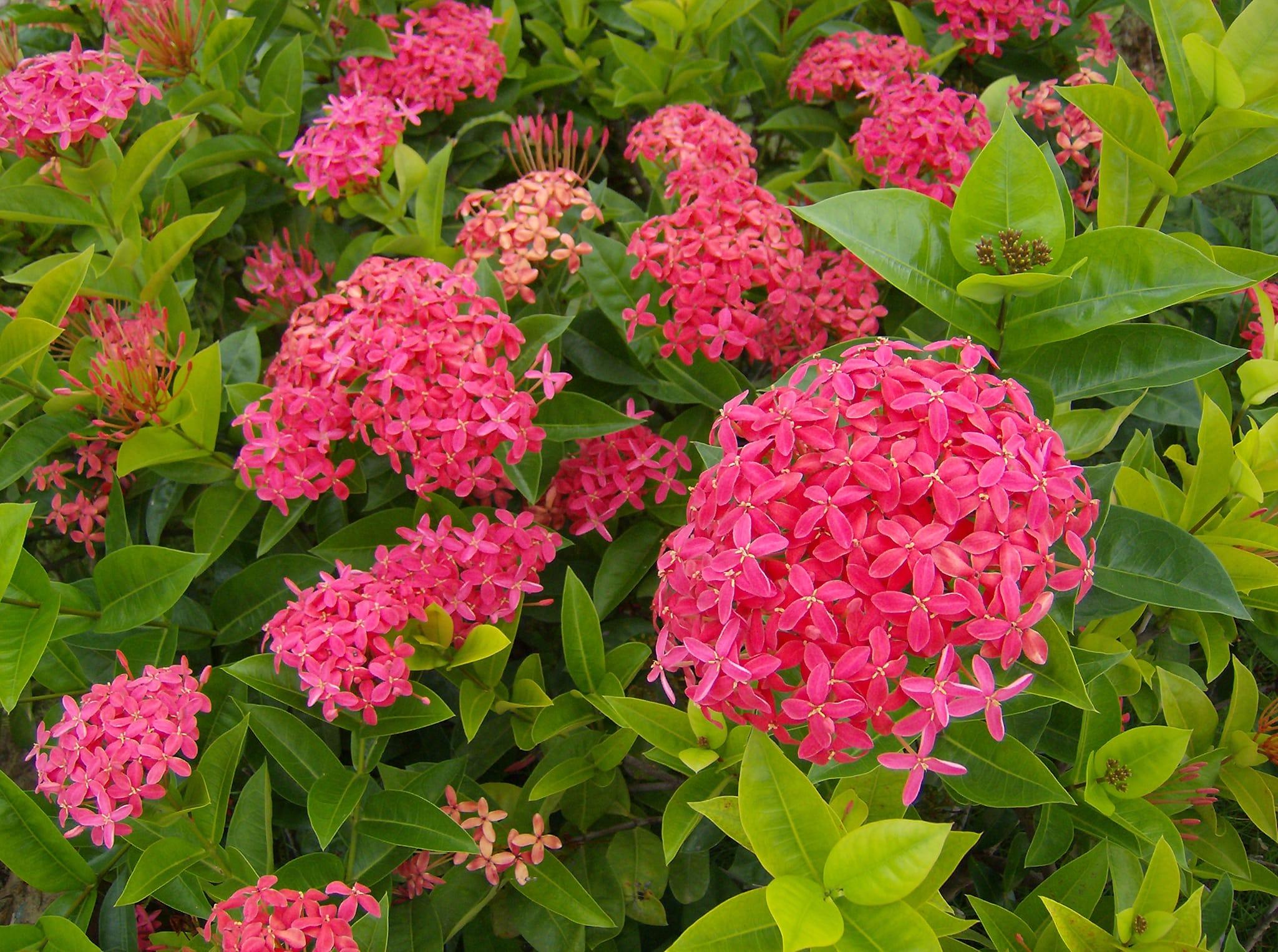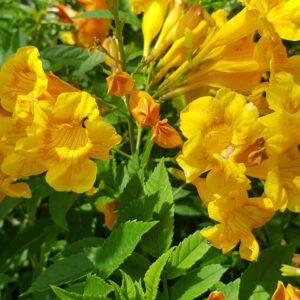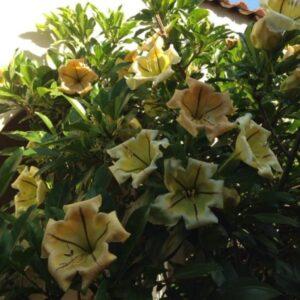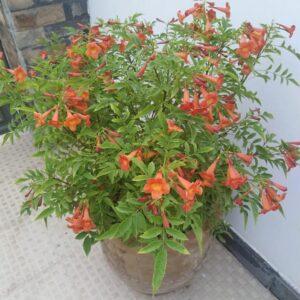Ixora The Flame of the Woods
Ixora is a vibrant, evergreen flowering shrub known for its large, clustered blooms that come in red, orange, yellow, pink, or white. A favorite in tropical and subtropical gardens, it is often used in hedges, borders, and decorative pots. With its dense foliage and long-lasting flowers, Ixora adds structure and color to both formal and informal landscapes.
In India, it’s often called Rugmini, and in some regions, it’s known as Jungle Geranium or West Indian Jasmine.
🌸 General Description
Botanical name: Ixora coccinea (most common species)
Common names: Ixora, Flame of the Woods, Jungle Geranium, Rugmini
Plant type: Evergreen shrub or small tree
Height: 2–6 feet (up to 10 feet for larger varieties)
Spread: 3–5 feet
Leaves: Glossy, leathery, dark green
Flowers: Tight clusters of tiny star-shaped blooms
Blooming season: Year-round in warm climates, with peak blooming in summer and monsoon
☀️ Light and Temperature Requirements
Sunlight:
Prefers full sun to partial shade
For best flowering, give at least 4–6 hours of direct sun daily
In very hot climates, afternoon shade is beneficial to prevent leaf burn
Temperature:
Thrives in 20–35°C (68–95°F)
Sensitive to cold and not frost-hardy
Minimum temperature: 10°C (50°F)
💡 In colder climates, it can be grown in pots and brought indoors during winter.
💧 Watering Routine
Ixora enjoys consistently moist but not soggy soil.
Young plants:
Water 2–3 times per week during establishment
Mature plants:
Water once every 2–3 days in summer
Reduce watering in winter or during rainy season
🪴 Always check that the top 1–2 inches of soil are dry before watering again.
Avoid hard water—it may affect soil pH and flower color.
🌱 Soil and Fertilizer Needs
Soil:
Ixora prefers slightly acidic, well-draining soil (pH 5.5–6.5)
Add cocopeat, peat moss, compost, or leaf mold to improve acidity and drainage
Avoid alkaline or heavy clay soils—they lead to iron deficiency (yellowing leaves)
Fertilizer:
Use a balanced, slow-release fertilizer (e.g., 10-10-10) every 6–8 weeks
Boost flowering with phosphorus-rich fertilizers or bone meal
Use iron-rich foliar sprays if leaves show chlorosis (yellowing between veins)
🌿 Organic compost, banana peel water, or vermicompost also help maintain steady nutrition.
✂️ Pruning and Maintenance
Prune lightly after each flowering cycle to:
Maintain shape
Remove dead or crossing branches
Encourage bushy growth and more flowers
Hard pruning can be done in late winter or early spring
✂️ Ixora can be shaped into hedges, domes, or potted mounds, making it ideal for decorative landscaping.
🌿 Propagation Methods
Stem Cuttings (most reliable):
Take 4–6 inch softwood cuttings in spring/summer
Dip in rooting hormone and plant in moist cocopeat or sandy mix
Roots form in 3–5 weeks
Air Layering:
Works well for mature branches
Wrap a wounded stem with moist moss and plastic until roots develop
Seeds:
Rarely used—slow to grow and doesn’t guarantee flower color fidelity
🌱 Cutting-grown plants bloom faster than seed-grown ones.
🐛 Pests and Diseases
Ixora is generally hardy but can sometimes be affected by:
Aphids, mealybugs, and scale insects
Sooty mold (result of pest activity)
Iron deficiency (yellowing leaves due to alkaline soil)
Leaf spot or fungal issues in overly humid or crowded areas
🛡️ Treat with neem oil spray or mild insecticidal soap.
Ensure good air circulation and avoid overhead watering.
🎍 Landscape and Container Uses
Used for:
Hedges and borders
Foundation plantings
Tropical flower beds
Large pots on patios or balconies
Compact varieties are perfect for bonsai or indoor display
🌼 Combines beautifully with hibiscus, gardenia, or ferns for a tropical look.
✅ Conclusion
Ixora is an ideal choice for tropical and subtropical gardeners seeking low-maintenance, year-round color. With regular watering, pruning, and acidic soil, it will thrive and reward you with vibrant flower clusters that attract butterflies and brighten up any space. Whether grown as a hedge, border, or potted accent, Ixora is a beautiful investment for any landscape.
“





Reviews
There are no reviews yet.